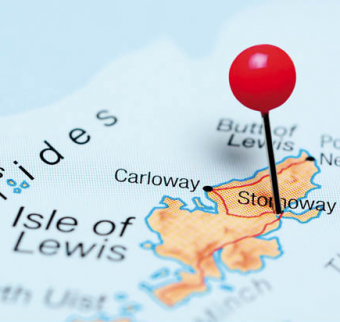Access all areas
Author: Stewart McRobert
Rural communities need health services like the rest of us, but attracting dental professionals to live and work among them appears to be a hard sell. But what is the reality of practising in remote locations?O
Over the last few years, various reports on healthcare workforces have highlighted that there is a continuing difficulty in recruiting to posts that serve remote and rural populations.
In Scotland, for instance, this poses a significant potential issue as, according to Scottish Government figures, 70 per cent of its land area is classified as “remote rural” with a further 28 per cent classified as “accessible rural”. Seventeen per cent of Scotland’s population resides within this rural land area, with more over 55-year-olds living in remote rural areas than in any other type of area.
The need to provide accessible dental services to such people living rurally is clear, but it seems that living and working remotely and rurally may not be attractive to dental professionals.
Those electing to practice in urban, densely populated areas cite concerns around access to support and allied services for their patients; potential issues with accessing their own professional training and CPD; and the more personal issue of maintaining personal and professional distance with their patients while living in smaller, more isolated communities.
Those that work in remote and rural areas, however, clearly do not feel the same. Instead, they talk about the breadth of practice they can undertake; the strong professional relationships they can build with their patients; and the quality of life available to them personally. With more and more training and CPD available on-line, and access to courses in an increasingly wide variety of physical locations, training doesn’t seem to be an issue either.
Of course, the attractiveness, or not, of working in remote and rural areas is really down to the individual, but there is no doubt that accessing services can be an issue for patients.
Many people living and working in rural communities have professions which operate outside the more urban 9-5, and work in locations where taking an hour off to pop for a check-up is simply impossible.
But what does this mean in reality, and what is life really like for dental professionals who choose to provide services to them? We spoke to two dental professionals to find out more.

Island life
It’s part of the ethos at the Institute of Dentistry at the University of Aberdeen – give senior students clinical experience through outreach in remote and rural locations. So, it was no surprise to final-year students Hannah Cousins and Anmar Al-Ansari when they were told that they would be part of an outreach programme at the Western Isles Dental Centre in Stornoway during early 2017. Instead, the eye-opening came when they had completed their placement and realised that life as a dentist there is far from bleak and windswept.
“Spending time in Stornoway has been one of the highlights of our dental journey so far,” said Hannah. “Having the opportunity to explore a new place, and experience an alternative clinical setting, has been crucial for personal and professional development.”
Both began with few pre-conceptions: “I didn’t know what to expect of the location,” said Anmar. “I knew it would be a very different environment from the one I’m used to, and I was a little apprehensive about treating a population where everyone knew everyone else.”
Hannah explained: “I’m from London originally and many of the places I’ve explored during my time in Aberdeen are new to me. I tried to go with an open mind and take it for what it was.”
They found a dental centre in Stornoway that is part of the town’s hospital campus. It has 12 surgeries and is staffed by half a dozen dentists. The public dental service based there is the only place on Lewis and Harris – and surrounding islands – where you can receive dental treatment, though there are plans to set up a general dental practice in the near future.
“People on the islands recognise that it is more difficult to deliver a service in a remote and rural community and, since access to services was historically poorer than it is now, they appreciate the service they receive,” said Hannah.
Anmar added: “Dentists we spoke to did say there is the potential for professional or social isolation. Therefore, among other things, you have to be proactive in involving yourself in the community.”
After completing their outreach, the pair compiled a list of the benefits they believe can be had from practising in this type of remote and rural location.
Consistency – being able to treat generations
of families and build a lasting rapport with them provides great job satisfaction
Community – a sense of togetherness in the dental team and between clinicians and patients cements a positive working environment
Career – compared with the mainland, healthcare professionals have more autonomy in terms of career development and shaping of the service.
“I would never have thought about practising in somewhere like Stornoway before I went there. Now, I would certainly consider it,” said Anmar.
Tags: 2019, areas, communities, map


You must be logged in to post a comment.